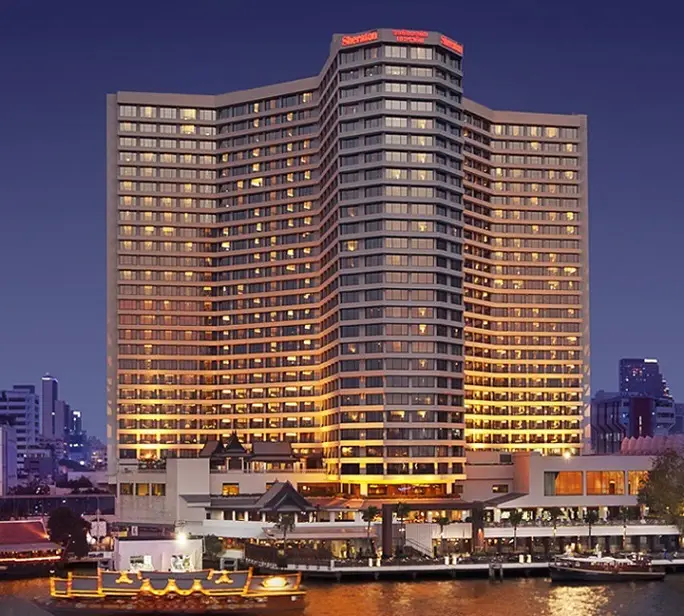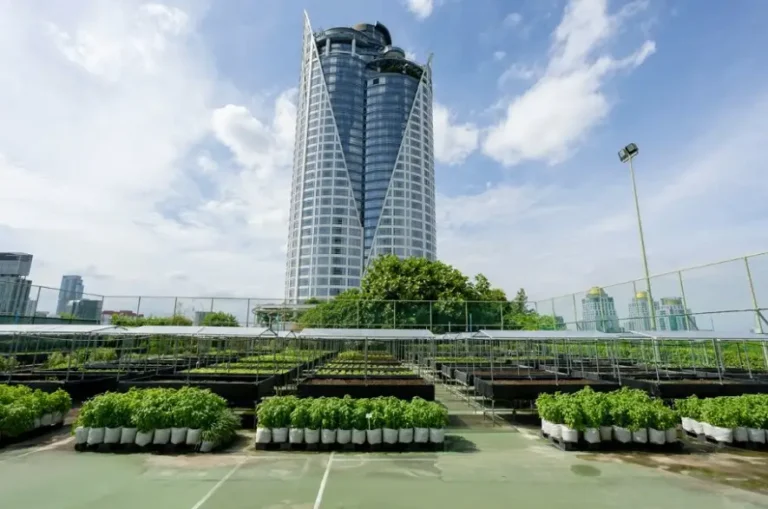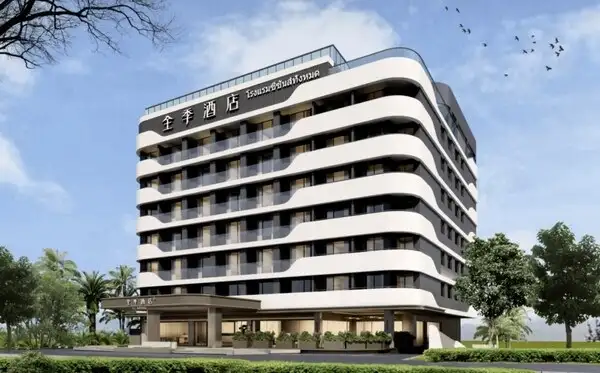
Bangkok Hotel News: Thailand’s Hospitality Industry Surges Back with a Vengeance
Thailand’s tourism sector is roaring back to life, setting the stage for a phenomenal growth phase in its hospitality industry. According to a comprehensive new study titled: Hospitality Industry in Thailand – Market Share Analysis, Industry Trends & Statistics, Growth Forecasts (2025-2030) from ResearchAndMarkets.com, the market is forecasted to soar from USD 1.5 billion in 2025 to an impressive USD 1.98 billion by 2030. This anticipated boom represents a compound annual growth rate (CAGR) of 5.67% and reflects a renewed global interest in Thailand’s unique travel offerings and revitalized infrastructure.

as global hospitality giants ramp up expansion across the kingdom
Image Credit: AI-Generated
Thanks to its captivating cultural heritage, stunning natural beauty, and world-class hospitality experiences, Thailand continues to entice travelers from every corner of the globe. This Bangkok Hotel News report highlights how the country’s industry players—from street-side boutique lodges to sprawling luxury chains—are adapting to rapid changes in consumer behavior. The post-pandemic shift toward sustainable tourism, coupled with cutting-edge tech solutions like digital check-ins and AI-driven concierge services, is transforming Thailand’s hotel landscape in real-time.
New Generation Travelers and Government Push Fueling Expansion
The growth is not accidental. An influx of younger, more tech-savvy travelers—both local and foreign—has energized the market, with preferences tilting toward experiences, convenience, and sustainability. Recognizing this trend, many Thai hotels are implementing wellness programs and eco-conscious business models to attract environmentally aware guests. Flagship properties like Six Senses Yao Noi in Phuket are setting a benchmark by seamlessly blending luxury with sustainability.
Meanwhile, the Thai government has ramped up efforts to stimulate tourism recovery and expansion. Notably, the Ministry of Tourism and Sports reported over 27 million international arrivals last year, with hopes pinned on reaching 36 million this year. Travelers from Malaysia, China, Singapore, and India continue to lead the numbers. This resurgence has transformed tourism into one of Thailand’s top GDP contributors, with substantial knock-on effects for retail, food and beverage, aviation, and of course, hospitality.
Top Global Players Compete for a Slice of the Thai Pie
Despite being fragmented, Thailand’s hospitality sector is fiercely competitive, attracting the world’s biggest hotel chains alongside strong local brands. Market leaders like Accor SA, InterContinental Hotels Group, Marriott International, Centara Hotels, Radisson Hotel Group, and Hyatt are deeply entrenched and actively expanding. They are capitalizing on Thailand’s dual appeal to budget travelers and luxury seekers.
The brand penetration rate among Thai hotels is increasing rapidly. This is due not only to growing demand but also to foreign tourists’ preference for reliable international hotel names. At the same time, many domestic chains are also scaling up their offerings to compete, offering localized experiences with international standards of service.
Massive Hotel Construction Wave Underway
To accommodate this surging demand, Thailand is witnessing an unprecedented construction boom in the hotel industry. In Q4 of last year alone, there were 155 hotel projects underway, accounting for nearly 38,000 new rooms. Bangkok remains the top hotspot for these developments, followed closely by Phuket.
International groups are betting big. Radisson Hotel Group has ambitious plans to expand its Thailand portfolio to 100 properties by next year. Marriott International is on track to add 10 more hotels across various tiers by the end of the year. This construction frenzy is expected to significantly reshape Thailand’s tourism map by offering new choices in both metropolitan and remote locations.
Strategic Shifts Toward Medical and Green Tourism
In response to changing travel motivations post-COVID, the Thai government and private sectors are pushing Thailand as a hub for medical tourism, MICE (meetings, incentives, conferences, and exhibitions), and sustainable or green travel. Medical tourism, in particular, is gaining traction due to the country’s reputation for affordable yet high-quality healthcare services and wellness retreats.
Additionally, the introduction of new airline routes and increased flight frequencies is making Thailand more accessible than ever. Improved connectivity, combined with digital tourism campaigns, has allowed the country to tap into newer markets and traveler demographics.
Technology and Affordability Remain Thailand’s Winning Combo
Another edge for Thailand lies in its service excellence at relatively affordable price points. Tourists are able to enjoy four- and five-star experiences at a fraction of the cost compared to many Western destinations. With the adoption of smart tech—from virtual concierge systems to mobile room keys—hotels in Thailand are delivering efficiency and safety, two features especially valued in the post-pandemic travel era.
Service apartments, mid-tier hotels, and luxury properties alike are investing heavily in user-friendly technology to streamline guest experiences. This digital pivot ensures Thailand stays competitive in the regional and global travel ecosystem.
Challenges Loom but Opportunities Abound
While prospects are bright, the industry still faces hurdles. A lack of skilled labor, mounting competition, and the ongoing pressure to maintain environmental sustainability are concerns that could weigh on long-term profitability. Yet, these challenges also open doors for innovation and investment, particularly in hospitality training, green infrastructure, and AI-powered customer management systems.
The opportunity to develop high-end boutique properties, especially in up-and-coming destinations outside traditional tourist circuits, is particularly promising. Additionally, there is immense untapped potential in online marketing strategies to capture emerging tourist markets in Central Asia, Eastern Europe, and Africa.
Thailand’s Hospitality Industry Enters a Defining Decade
As Thailand’s hospitality sector barrels toward a near 2 billion dollar milestone by 2030, it stands at a transformative juncture. The combination of international interest, aggressive expansion by global and local players, and a government eager to reposition Thailand as a premium yet accessible destination will shape the next decade.
For now, Thailand’s hotels are not just recovering—they are evolving. With technology, sustainability, and affordability at the core, the kingdom is well-positioned to redefine hospitality in Southeast Asia and beyond.
The market study can be found here:
https://www.researchandmarkets.com/reports/5012542/hospitality-industry-in-thailand-market-share
For the latest on Thailand’s hotel market, keep on logging to Bangkok Hotel News.







